Ten years ago, I wrote a blog entry with the same title…and here I am again, reminding myself that I am powerless over anyone except myself.
My personal reflection: When my son was in active addiction, I talked, ranted, threatened, and cajoled, but words never penetrated the tough exterior of addiction. My words fell on deaf ears and a stone heart. I finally learned to find comfort in talking less and praying more.
Today’s Promise to consider: The mantra, “Talk less, pray more,” is a reminder that I can’t control or change anyone. I can, however, listen more closely, respond with greater compassion and skillfulness, and continue to find strength in my Higher Power. And I will.

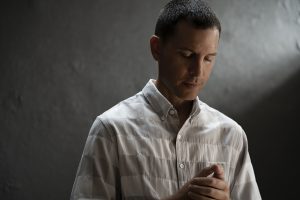
 A mom wrote to me: With addiction, no mother dreams that she would ever have to do the things she learns to do. How do we keep channels open with our children, while also keeping our boundaries clear? How do we manage self-care so that we can be there the next time, and the next time, and the time after that? Let us never give up on our children, and let us keep hope alive. If the worst were to happen, we can say, “I did the very, very, very best I could do.” Just keep accepting and loving where they are. We are warrior women fighting for clarity in the midst of a disease that brings chaos.
A mom wrote to me: With addiction, no mother dreams that she would ever have to do the things she learns to do. How do we keep channels open with our children, while also keeping our boundaries clear? How do we manage self-care so that we can be there the next time, and the next time, and the time after that? Let us never give up on our children, and let us keep hope alive. If the worst were to happen, we can say, “I did the very, very, very best I could do.” Just keep accepting and loving where they are. We are warrior women fighting for clarity in the midst of a disease that brings chaos. Elisabeth Kubler-Ross wrote: People are like stained-glass windows. They sparkle and shine when the sun is out, but when the darkness sets in, their beauty is revealed only if there is a light from within.
Elisabeth Kubler-Ross wrote: People are like stained-glass windows. They sparkle and shine when the sun is out, but when the darkness sets in, their beauty is revealed only if there is a light from within.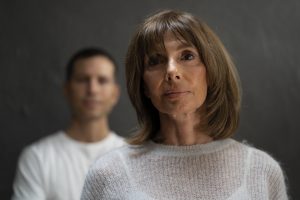 A mom wrote to me: With addiction, love never dies, but exhaustion can interfere with clarity and decisions. Big picture thinking makes for resilient, compassionate hearts.
A mom wrote to me: With addiction, love never dies, but exhaustion can interfere with clarity and decisions. Big picture thinking makes for resilient, compassionate hearts. My son and I had a conversation about how families survive trauma, particularly with addiction: The dynamics around addiction are complicated and personal to each family. Addiction brings us to our knees, but we don’t have to collapse. Every family trauma – including things like infidelity, financial ruin, legal issues, and death – severely tests us. We have a choice: we can either crumble (which is sometimes the best response in moments of deep pain), or we can gather ourselves up, lean into our community, and push forward. My dad used to tell me, “Daughter, with your children there is no quit.” Families suffering from addiction have the choice to quit, but we also have the choice to prevail. Addiction and other traumas can make us stronger.
My son and I had a conversation about how families survive trauma, particularly with addiction: The dynamics around addiction are complicated and personal to each family. Addiction brings us to our knees, but we don’t have to collapse. Every family trauma – including things like infidelity, financial ruin, legal issues, and death – severely tests us. We have a choice: we can either crumble (which is sometimes the best response in moments of deep pain), or we can gather ourselves up, lean into our community, and push forward. My dad used to tell me, “Daughter, with your children there is no quit.” Families suffering from addiction have the choice to quit, but we also have the choice to prevail. Addiction and other traumas can make us stronger. The Washington Post
The Washington Post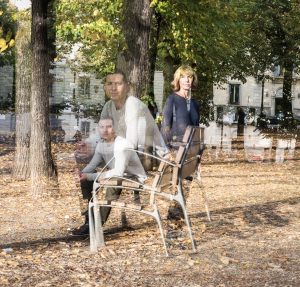 I talked with a friend, whose son is suffering from substance abuse, and I was moved by her words to her son. “I believe in you,” she told him, “Sure I’m afraid of what the future holds for you and our family, but I don’t want to breathe my fear into you. I want to give you hope.”
I talked with a friend, whose son is suffering from substance abuse, and I was moved by her words to her son. “I believe in you,” she told him, “Sure I’m afraid of what the future holds for you and our family, but I don’t want to breathe my fear into you. I want to give you hope.”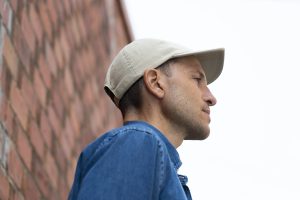 A mom wrote to me: My son is miraculously almost a month sober thanks to some guardian angels in AA, who are showing him there is a better way. He has been to many rehabs, but never fully bought into the message of AA. This time he has been embraced by some very good people, and this has been the missing link all along. The program has done for him what no amount of love, effort, or money has been able to do before.
A mom wrote to me: My son is miraculously almost a month sober thanks to some guardian angels in AA, who are showing him there is a better way. He has been to many rehabs, but never fully bought into the message of AA. This time he has been embraced by some very good people, and this has been the missing link all along. The program has done for him what no amount of love, effort, or money has been able to do before. A friend wrote to me: The hardest thing of all for me is to see that we, families and friends, walk a different and separate path from those we love who suffer from the disease of addiction. How can we feel happiness or find peace when someone we love is in pain? We each have to answer that in our own way. I do not always follow this or do it with grace, but I keep trying.
A friend wrote to me: The hardest thing of all for me is to see that we, families and friends, walk a different and separate path from those we love who suffer from the disease of addiction. How can we feel happiness or find peace when someone we love is in pain? We each have to answer that in our own way. I do not always follow this or do it with grace, but I keep trying.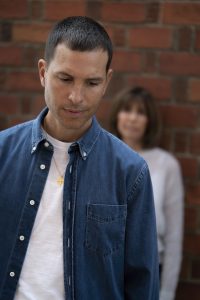 A friend wrote to me: I think no one but an addict’s mother, family, and loved ones will ever truly understand how much courage, love, and suffering it takes to do nothing. Even staying close means the sacrifice of witnessing without taking the actions that blind love demands. How admirable and impossibly painful it is to love without attempting to rescue.
A friend wrote to me: I think no one but an addict’s mother, family, and loved ones will ever truly understand how much courage, love, and suffering it takes to do nothing. Even staying close means the sacrifice of witnessing without taking the actions that blind love demands. How admirable and impossibly painful it is to love without attempting to rescue.
6 Comments.
View Comments | Leave a Comment